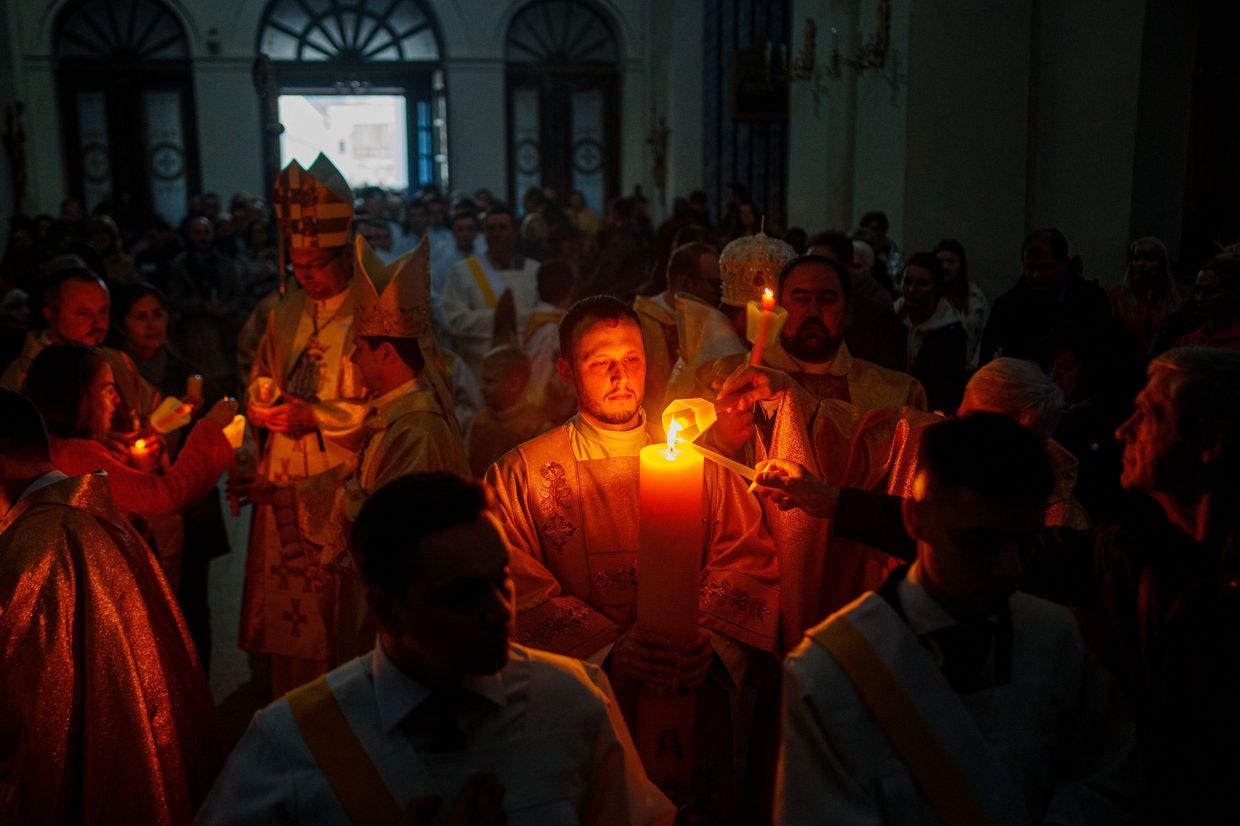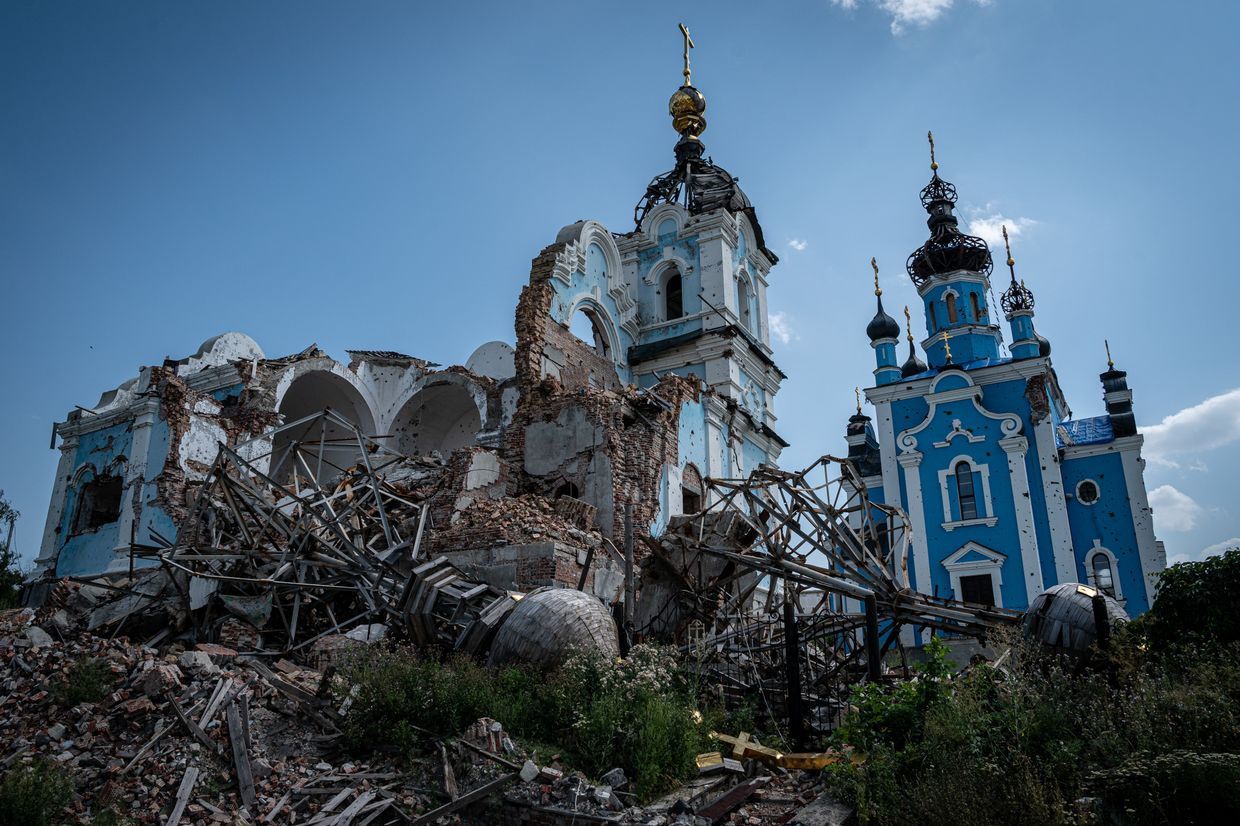Bill on banning Russian-linked churches postponed, MPs block parliament in protest

Lawmakers from several opposition parties – Holos (Voice), European Solidarity, and Batkivshchyna – blocked Ukraine's parliament rostrum on July 23 following the governing party's decision to not bring the bill on banning the Russian-linked church to the floor.
Following the failed vote, the session was ended, with the parliament scheduled to reconvene in August.
In January 2023, the government registered a bill aimed to ban the activities of religious organizations linked to Russia. The bill's primary target is the Ukrainian Orthodox Church of the Moscow Patriarchate (the UOC-MP).
The draft law was prepared based on the National Security and Defense Council (NSDC) decision. Earlier, the NSDC appealed to President Volodymyr Zelensky to review the activities of religious organizations in Ukraine in light of Russia's military aggression.
The NSDC said that the activities of pro-Russian religious groups could cause a split in society on religious grounds, as well as hinder the consolidation of Ukrainian society and the protection of national interests.
The Ukrainian Orthodox Church of the Moscow Patriarchate is officially tied to the Russian Orthodox Church. The Moscow-linked church has broadly supported Russia's full-scale war against Ukraine.
The governing Servant of the People faction and former members of the pro-Russian Opposition Platform – For Life party, now banned in Ukraine, voted against bringing the bill to the floor.
The Ukrainian Orthodox Church claimed that it acted legally within the framework of Ukrainian legislation and criticized the NSDC's decision.
"The Ukrainian Orthodox Church is independent and not subordinate to the Moscow Patriarchate," Metropolitan Klyment told Ukrainian media outlet Hromadske, a statement that isn't officially true.
During recent searches in premises controlled by the Moscow-linked church, the Security Service of Ukraine has found Russian propaganda and xenophobic literature, and Russian passports belonging to senior clergy.















